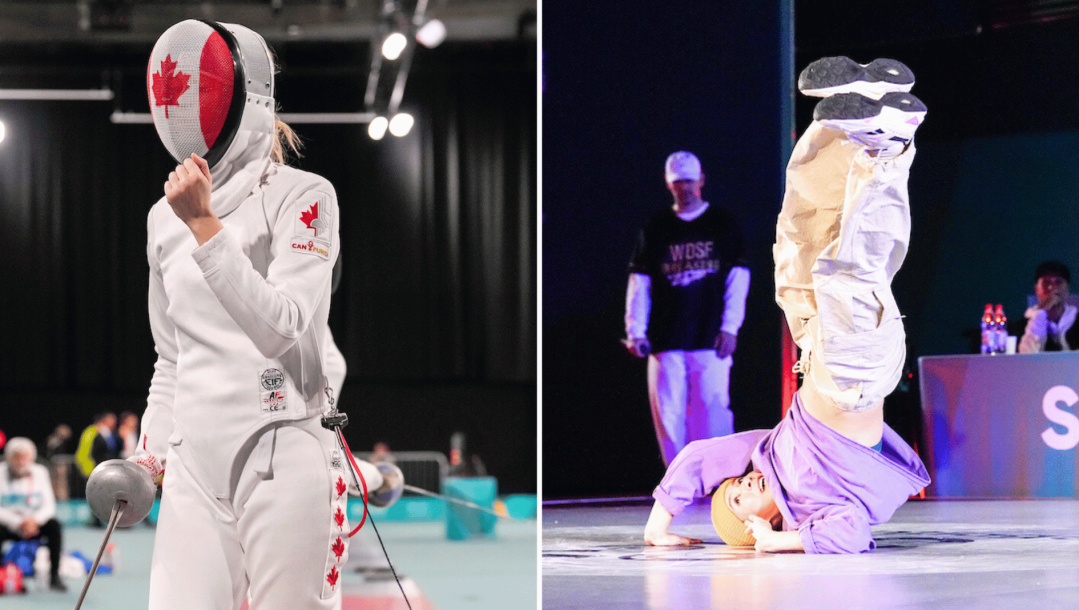Team Deloitte helps working athletes with Olympic dreams find their balance
The training requirements of being an Olympic hopeful are not often complementary to the realities of a demanding, so-called “regular” career. For many young athletes, the choice becomes one or the other.
At Deloitte Canada, Canadian Olympic hopefuls don’t need to make that choice. The organization formed “Team Deloitte” ‒a dual-career group to support people who are both Deloitte employees and elite athletes on the road towards the Paris 2024 Olympic or Paralympic Games.
In the case of Tiffany Leung, this dual-career path is one she never imagined–in part because when she began her professional career at Deloitte, her sport, breaking, wasn’t even on the Olympic program. Breaking will make its Olympic debut at Paris 2024.
Leung got into breaking during her first year at Queen’s University, where she was pursuing a degree in cognitive science. When a b-girl (the term for female break dancers) came in to use the same studio that Leung was exiting, she was transfixed.
“I instantly fell in love with the movement because it was so unique,” Leung says. “My previous perception of breaking was that it was kind of a watered-down version of gymnastics. But when I saw the footwork, I realized that I was completely wrong and I just thought–’I have to do that’.”
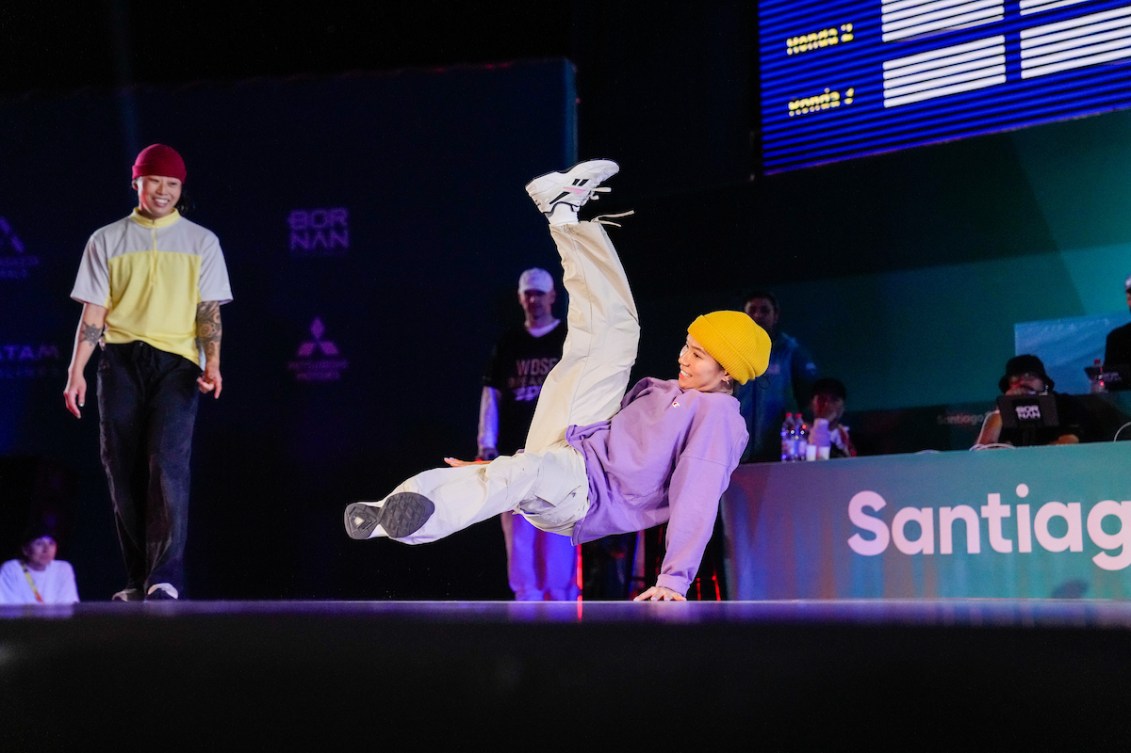
But pursuing breaking as a career option was not on Leung’s mind. In her fourth year of university, she was exposed to the world of consulting and found that it suited her personality well.
“It’s project-based, so you get to learn about all different industries, and I’ve always loved to learn,” says Leung. “It’s the type of job where you never get bored.”
While still finishing up her degree, she secured a job as a tech consultant at Deloitte. That was almost seven years ago and Leung is still with the organization, serving as a senior consultant specializing in artificial intelligence.
When she first started working full-time, breaking took a backseat. Passionate about her job, Leung dedicated extensive hours to work, trying to establish herself.
“I found it challenging to maintain a work-life balance at that time as I was struggling with setting boundaries,” Leung says. “I knew I needed to make a change to prioritize and respect my own time.”
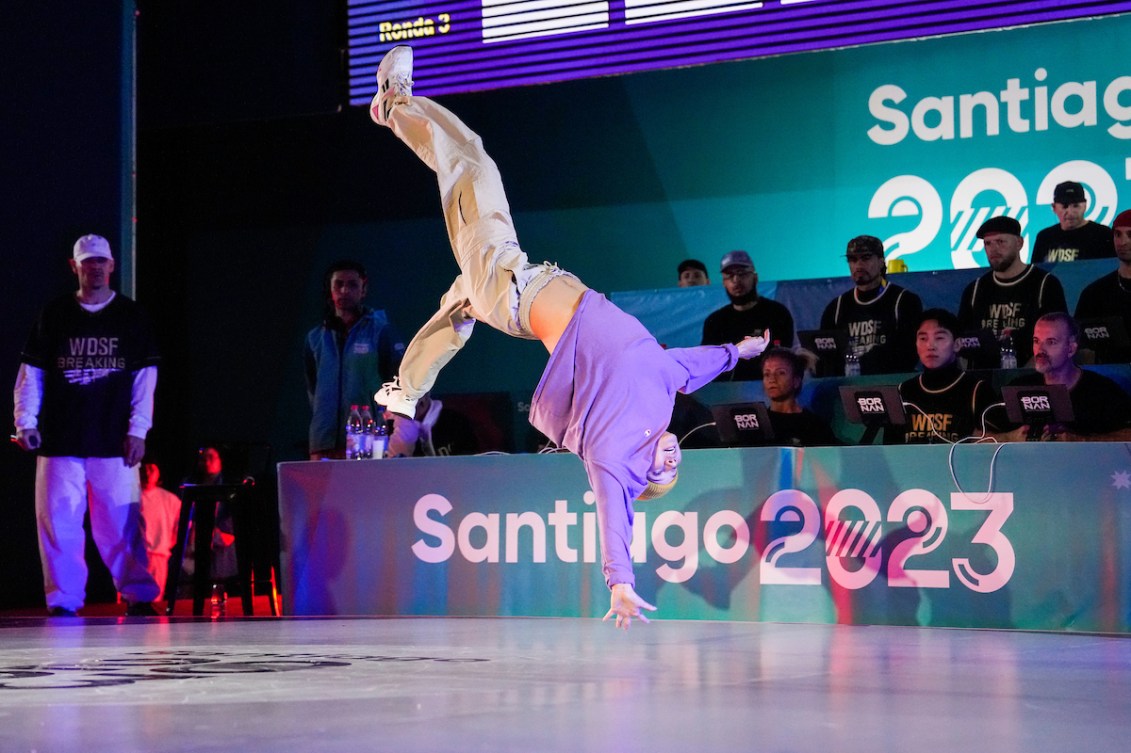
She also wasn’t sure that her colleagues would understand if she said she had a hard stop on work to get to a breaking session.
“I had a misconception that people would be like, ‘what are you doing? Work is way more important’.”
But then breaking was added to the Olympic program and Leung was invited to compete at the 2022 World Games, where she snagged a fifth-place finish.
“That was when I had the moment in my head of–I think I could do this and go to the Olympics,” Leung says. “But I knew to be among the best in the world, I couldn’t continue working 60 hour weeks.”
So Leung went to Deloitte and said: I want to go to the Olympics for breaking–can you support me?
The response she received immediately eliminated any trepidation she had about her goals not being taken seriously. She was added to Team Deloitte, which provides formal recognition of her dual-career status as breaker/consultant. She also received 24/7 access to Deloitte’s Recharge Wellness Centre when COVID-19 barred her from most of her regular training facilities.
But the most important way that Deloitte supported her was with the gift of time.
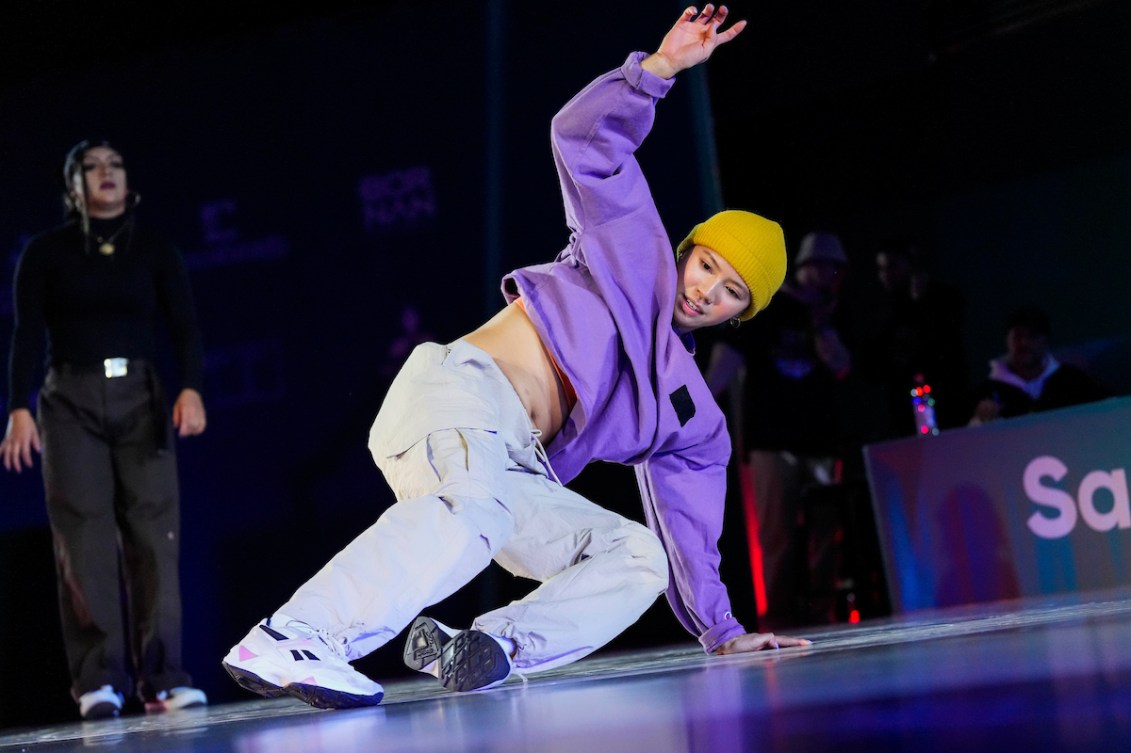
“It’s been almost a year now that I’m working three days a week,” Leung explains. “It’s been incredibly helpful, because I’ve also dealt with multiple concussions, so the combined strain of spending all my time on a computer screen, plus breaking, was a huge strain.
“It’s also cool because now I’m not just an employee of Deloitte, but I’m also breaking for Deloitte.”
Leung is using that extra time leading into the Olympic Qualifier Series in May to expand her repertoire and hone her style. She placed fourth at the Santiago 2023 Pan Am Games in November.
READ: Advice from Team Canada athletes to first time spectators of their sports
But Leung isn’t the only member of Team Deloitte for whom time is a valuable support.
Alexanne Verret, an Olympic hopeful in fencing, went looking for a job that would align with her athletic goals and found that there weren’t a lot of opportunities out there for people like her.
Verret started fencing during her childhood as an afterschool activity and attended Ohio State University on a fencing scholarship, where she pursued a degree in accounting.
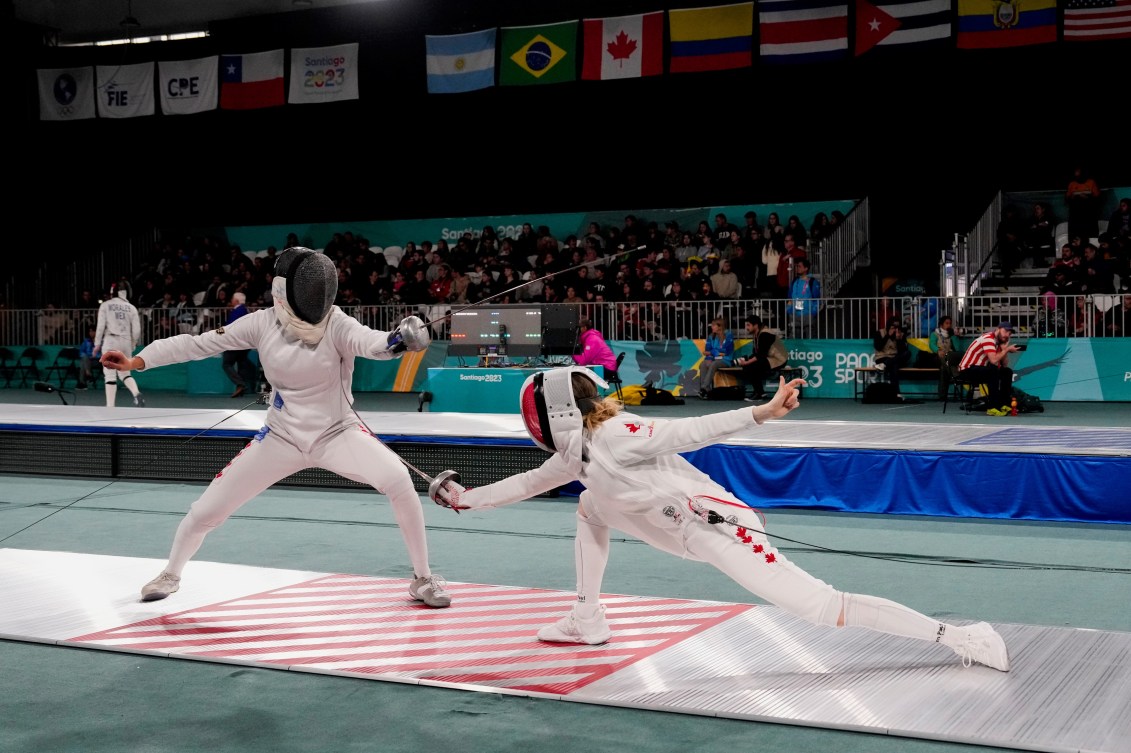
“After graduation, I still wanted to fence and I was searching for a job that was related to my degree. It was not easy to find a position that could be flexible to balance my sports career,” Verret says.
She found that balance as a member of Team Deloitte, working in the audit and assurance practice. Verret works 25 hours a week, which allows her to continue training at a high level. She has core hours that she’s available to her team and makes sure to spend a full day in the office each week to stay connected to her colleagues.
Both Verret and Leung say that one of the most enjoyable aspects of juggling elite sport and a professional career is the enthusiasm and support of their colleagues.
“When I come back from a competition, they want to know where I’m at with my [Olympic] qualification. They’re very supportive,” says Verret.
This is despite the fact that most of her colleagues didn’t know much about fencing before they met her.
To people who are new to fencing, Verret recommends starting with épée, which is her own discipline. Épée has the largest target area of all the fencing blades; points can be scored by placing the tip anywhere on an opponent’s body, including the head and feet. A light goes off to indicate that an athlete’s weapon has made contact with their opponent’s body.
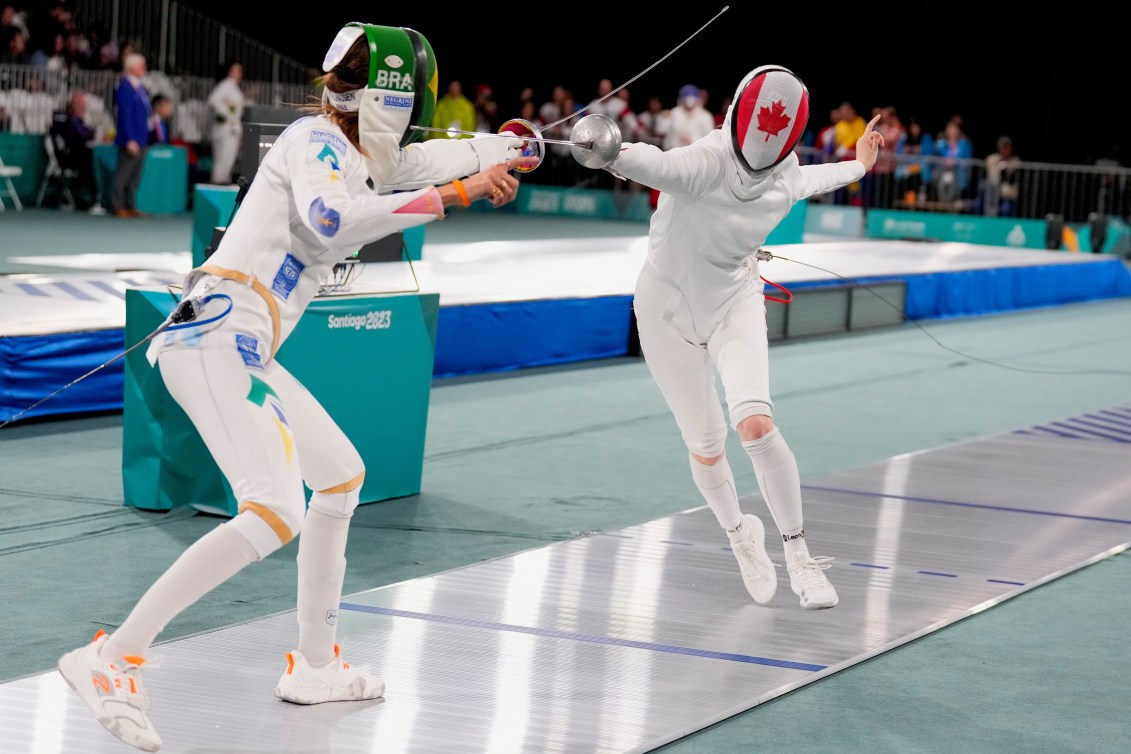
“When the person gets the light, it’s their point, so it’s pretty straightforward. I would recommend getting used to épée and learning more about the sport before trying to watch the other two weapons [foil and sabre]. With those, it’s about priority–even I sometimes need video replays,” Verret says with a chuckle.
Leung has also found her colleagues supportive of her dedication to a sport that will make its Olympic debut this summer. Furthermore, she believes that Deloitte’s approach to teamwork has helped shape her as an athlete as well: “In high school in Hong Kong, they taught us to be really competitive and not really to collaborate. I feel like working at Deloitte has really taught me how to collaborate–how to work with smart people and know that they can teach me things and I can teach others.”
She’s bringing that attitude to the dance floor, where she now feels like she doesn’t only represent Team Canada, but also Team Deloitte.
For both Leung and Verret, the support from Deloitte is a crucial factor for the pursuit of their sporting ambitions.
“Honestly, if Deloitte didn’t give me this kind of support, I wouldn’t be able to try and qualify for the Olympics,” Leung says frankly.
Verret notes that this type of support fills in some of the gaps in the sport system for her in a way that not all athletes have access to: “I’m really grateful to have this opportunity and I would love other athletes to have something similar. I’m spending a lot of time fencing, but I don’t feel like I’m falling behind in my professional career compared to my peers who are not in sport, which is huge.”

